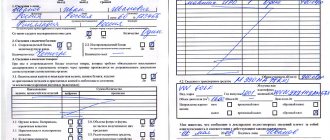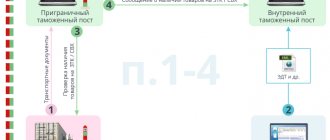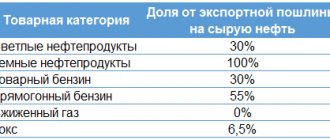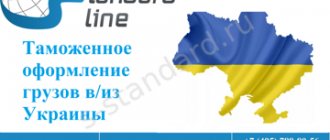The job of a customs officer in Russia is one of the most prestigious. Getting to customs at the airport, to the border at transition points, including at the borders of the Customs Union, is not easy. To do this, you need to have knowledge in the relevant field, graduate from a special faculty at a university, understand customs legislation, and know the features of documentation and document management.
The work and responsibilities of a customs officer
A person working in the customs service must be prepared for constant negative emotions from residents, irregular daily routines and emergency situations. They have no right to make a mistake, otherwise it could end extremely badly.
The customs service operates directly from the government apparatus and is subordinate to it. The responsibilities of employees of this profession include:
- controlling the specifics of foreign trade;
- monitoring the import of large amounts of money and their transfer to bank accounts;
- investigation into customs violations;
- maintaining and filling out documents;
- control at the checkpoint;
- thorough inspection of things transported at airports, train stations, etc.
- keeping records of goods obtained through confiscation;
- work to detect prohibited goods;
- work to detect contraband;
- work to eliminate violations in the field of customs law.
What does salary depend on?
The salary of a customs officer consists of a salary and bonus parts. The salary portion is always fixed and is calculated on two points - salary by position and salary by rank.
But the bonus is calculated using allowances and payments that depend on the nature of the work. For example, state secrets of “special importance” give a salary increase of 75%, “top secret” information – 50%, “secret” information with permission to fill out documents – 15%, and “secret” information without access – 10% of the salary .
Also, bonuses can be accrued based on the place of service - hard-to-reach areas of the country, the Far North, etc., which provide increasing coefficients when calculating earnings. Every month, customs officers receive a certain ration. If for some reason this does not happen, then the ration is converted into the appropriate cash equivalent and accrued along with the salary.
Each customs officer can apply for financial assistance once a year, the amount of which varies depending on the situation, but cannot be more than two months' salary.
Customs officers can retire early based on their years of service. There are vacation allowances for specialists in this field, which is 28 calendar days. With 10 years of service, the vacation bonus is 5 calendar days, for 15 years - 10 calendar days, and from 20 years - 15 calendar days.
What affects salary
Employee salaries depend on several factors. The base amount for calculating wages to employees is the salary based on the tariffication. Plus, allowances and payments are added to the salary, and adjustments by position and rank also occur.
The bonus, as a rule, plays a significant role in the salary issue. The amount of the bonus depends on the region of work. Representatives of the customs service can receive additional payment for their services or achievements:
- special conditions for civil service;
- working with classified materials;
- quality of work;
- class rank;
- academic titles;
- special achievements;
- work in remote and hard-to-reach places in Russia.
Special requirements for employment
How to become a customs officer, are certain personal qualities required for this, or is the desire to study and work in this profession enough? Before making a conscious choice, it is worth understanding that the future customs officer must meet the following requirements:
- Good health, which must be confirmed by the commission;
- Mental health must also be sufficient. Service employees sometimes have to work in stressful situations and themselves recognize certain points related to the peculiarities of psychology. In this regard, hiring will necessarily be preceded by an interview with a psychologist;
- The last point is all the knowledge that the future applicant must receive during the training process. These include the norms and rules of the customs code, the fundamentals of commodity science, economics, criminology, sanitary and veterinary control requirements, and ethics.
Average salary of a customs officer in the Russian Federation
Below are the salary amounts that reflect the salary situation in law enforcement and civil customs services in the Russian Federation in 2021. The highest salaries are for customs officers who work in Moscow and the region. For the law enforcement division of customs, the following salary levels have been established for 2021:
- Head of department - almost 50 thousand rubles/month.
- Head of customs posts, deputy heads - from 60 thousand to 70 thousand rubles/month.
- Heads of customs - almost 100 thousand rubles/month.
Customs officers at different levels differ from the salaries of their chiefs by 20%. The amounts indicated are net wages minus taxes, but without allowances. Additional salary formation items increase the salary by one and a half times.
Salaries of employees of the state division of the customs service are indicated below:
- Inspectors - 15 thousand rubles/month.
- Senior inspectors - about 18 thousand rubles/month.
- Chief inspectors - about 25 thousand rubles/month.
- Deputy heads of customs departments - about 25 thousand rubles/month.
By region
The salary of customs officers by region is as follows:
- Russian Customs Academy, where two employees from the customs management team work. Their salary is 184 thousand rubles/month.
- Far Eastern Customs Department - about 102 thousand rubles/month.
- Central Forensic Department - 98 thousand rubles.
- Sevastopol and Crimean customs - about 61 thousand rubles per month.
Employees of the state division of the Federal Customs Service earn an order of magnitude less:
- Far Eastern Customs Department - 50.8 thousand rubles/month.
- Siberian Customs Administration - almost 45 thousand rubles.
- Other regions of the country - 30–32 thousand rubles/month.
Salaries in Russia
On average in the Russian Federation, the salary of a customs officer is 33 thousand rubles per month worked. But in different regions of the country, the amount of earnings fluctuates from more to less, and vice versa.
- In Moscow, a novice customs officer can count on 30 thousand rubles . More experienced representatives of this profession receive 45 thousand rubles and more per month.
- In St. Petersburg, a customs officer receives almost the same as in the capital - 40 thousand rubles . A beginner specialist earns from 20 thousand rubles per month.
- In smaller cities, the income of a customs service representative is about 25 thousand rubles . From the end of 2021, the civil service plans to increase the salaries of customs employees by 20%.
Salaries in other countries
The profession of a customs officer in most countries is considered quite prestigious. Civil servants receive decent salaries, which are usually above average. Japanese customs officers can boast of the highest income, receiving 506 thousand rubles. per month. Despite the high price level in the country, this amount is still considered very large.
Table 4. Average salary in different countries.
| A country | Average salary, thousand rubles. |
| Japan | 506 |
| Germany | 411 |
| Australia | 379 |
| USA | 338 |
| UAE | 290 |
| Canada | 189 |
| Great Britain | 172 |
As a rule, customs officers earn little money at the initial stage. For example, in the USA, an inspector will have to start with 189 thousand rubles. ($33 thousand) - not so much by local standards.
How to get a job at customs without work experience
Despite the fact that the profession is in demand, a graduate may face the fact that preference will be given to a person with experience. But this does not mean that getting a job in your specialty will be unrealistic.
Submit your resume to the HR department in person, look for vacancies on a competitive basis where you can prove yourself better.
In addition, if a student was able to prove himself well during the internship, then such a specialist will not have problems with employment in the future.
Premiums and bonuses
Conscientious work is rewarded not only with verbal praise, but also with all kinds of incentives. For honest work and a job well done you can get:
- bonus;
- a gift of value (example: personalized weapon);
- exemption from disciplinary punishment;
- awarding an honorary title, or conferring a title earlier than expected.
The bonus is:
- additional leave that can be received after working for ten years. The longer the length of service, the more days of additional leave (from 5 to 15);
- insurance (at the expense of the organization);
- provision of compensation (in certain cases);
- provision of equipment, housing;
- clothing and financial assistance to students studying full-time at the Federal Customs Service;
- payment for business trips and all related expenses;
- payment for sick leave and other leaves (example: due to death, birth, fire).
Average salary for employees depending on position
The salary level in the Russian Federation for customs service employees is fixed by law. Generalizing all employees, the average monthly salary is 23,000 rubles. Depending on the position, on average they receive:
| Job title | Amount (rubles) |
| Managers | 40.000 |
| Head of Department | 35.000 |
| Deputy heads of departments | 30.000 |
| Heads of departments | 26.000 |
| Deputy Head of Department | 22.000 |
| Chief inspectors | 20.000 |
| Leading inspectors | 18.000 |
| Private inspector | 16.000 |
The positions are presented in descending order, from highest to lowest. The amounts shown here are excluding the bonus part, cash incentives, long service bonuses and all various incentives.
Salaries are higher depending on the regional level of service. Local customs officers are paid less than employees at the central customs post. Career growth and promotions are possible. How much customs officers receive can be understood if you find out on what basis the calculations are made.
Retirement
There are age restrictions for customs officers. Men in the junior and middle group are required to work until they are 50 years old. The senior staff is under 55 years old. The senior staff is under 60 years old.
Women are allowed to remain in service until they reach 45 years of age. After which the employee retires.
With an inexhaustible desire to work further, employees can stay in their positions for another 5 years. Permission to extend the contract is approved by the head of the Federal Customs Service. In this case, the employee will receive a pension and basic salary.
You can calculate your pension using the so-called “calculator”. There is a Federal Law “On Pensions” for citizens who served in the military, customs and other public service. This law states that after working for 20 years, a citizen has the right to a pension equal to 50% of the salary (regular and by rank).
Employment for other specialties
Salaries in customs are not always at the same level, but it should be understood that the number of individual specialties and positions that applicants can occupy is available not only if they undergo specialized training. Employees can also be hired if they have a higher education and in another specialty - there are a sufficient number of vacancies for them. So, the main preference is given to the following:
- Economy;
- Finance;
- Jurisprudence.
Additionally, it is possible to employ such employees, but it may be necessary to undergo retraining courses. Their duration is usually short and depends on the position for which the applicant is accepted. On average, after only 3 months of training, a citizen can undergo training and find a job in the customs authorities.
Professional training
To become a customs officer, you need to obtain a higher education in the specialty “Customs.” You can study through a bachelor's, master's or specialist's degree system. In addition, for advanced training or work in the customs system (brokers, declarants, etc.), there are various courses.
When entering a specialty, you need to pass the mandatory Unified State Exam in specialized subjects, as a rule, social studies, English, Russian, as well as an intra-university exam in physical education.
In different universities, training can be carried out in several specialties of customs affairs:
- Customs payments and currency regulation.
- Expertise and commodity science in customs affairs.
- Organization of customs control.
- Information customs technologies.
- Customs management, logistics, etc.
Features of the customs officer profession
Representatives of the state structure, within the framework of their assigned powers, are responsible for the supervision of goods intended for export and import.
Many people believe that the work of FCS representatives is monotonous and routine, but it is thanks to vigilant and scrupulous control at the border that the economic security of the country is ensured. Moreover, the shortage of personnel, the corruption component and careless performance of work in customs structures can destroy the foundations of state stability and integrity.
Professional training
After finishing 9th grade, boys and girls can enter a college specializing in customs training. For 3 years, lyceum students study in detail legal, economic disciplines, as well as the basics of state and municipal administration. After graduating from college, graduates have the right to continue their studies at a university or start working in the Russian Federal Customs Service system.
There is an opportunity to become a customs officer after 11th grade. The standard period of study at a university is 5 years. Part-time students learn the basics of customs business for 6 years. After studying at the university, a certified specialist in the FCS system can become:
- inspector;
- declarant;
- broker;
- carrier;
- document management officer;
- an employee specialized in solving foreign economic issues.
After graduating from the university, a graduate can also continue to study science at a university and enter graduate school.
What are the responsibilities
Federal Customs Service employees are required to detect evidence of smuggling in customs control zones and confiscate items prohibited for civilian circulation (narcotic/psychotropic substances, weapons, etc.). Additionally, customs officers:
- collect duties and fees;
- investigate crimes committed at the border;
- carry out personal searches of citizens at train stations and airports.
In order to cope with the assigned responsibilities to the maximum extent, a border control officer must have stress resistance, correct behavior, diligence, responsibility, and quick reaction. [flat_ab id=”2"]
Pros and cons of the specialty
Advantages and disadvantages will directly depend on the position held. It is obvious that a senior official or policy maker in the customs industry feels quite comfortable. But since we are not presenting a presentation of the opportunities and prospects of the industry, but an analysis of the real state of affairs, we will note the pros and cons of ordinary professions - inspectors, checkpoint employees, airports and train stations.
Key benefits
- Respectable, respected profession.
- A special mission is to ensure the country's security at the borders.
- Benefits – customs officers are often treated like military personnel.
- Possible supplements to pensions and social benefits.
- Civil service with all provided privileges.
Main disadvantages
- Low level of comfort.
- Average and sometimes downright low salaries.
- Bureaucracy and paperwork.
- Rampant corruption.
- The highest level of responsibility.
- Constant pressure from people who disregard the law.
Differences in titles and ranks received
When understanding the question of how much customs officers are paid, we should not forget that such a service consists of quite different ranks, specialties and titles, among which it is worth highlighting:
- Inspector 1-3 ranks;
- Advisor 1-3 ranks;
- State Councilor 1-3 ranks.
All of them can be divided into first and second. In this case, a new rank will be assigned only after a certain length of service and subject to occupying a position with a new rank.
When you are hired for the first time, you should be aware that you will be hired as a warrant officer. An exception may be situations in which the future employee had similar work experience and rank in government agencies.
All existing positions are subsequently combined into three large groups and comprise junior, middle and senior staff. The amount of salary will depend directly on the position held.
What to expect for customs officers in 2020
In 2021, not only will the customs officer’s fixed rate be increased, but employees in this field of activity will also be provided with a food ration or cash for it. Employees will be given additional days off to cover work on holidays. In addition, the customs officer has the right to count on financial assistance. It is intended for absolutely all customs service employees 2 times a year. Benefits will also be paid; no changes are envisaged. This assistance includes: free travel, medical care and sanitary treatment at a discount.
Advantages and disadvantages of the profession
When assessing employment prospects as a border control representative, an applicant should consider the potential pros and cons of working in the FCS system. The first include:
- prestige of the profession;
- availability of benefits and additional incentives (allowances, bonuses);
- a wide range of social guarantees (paid leave, medical care, etc.).
The list of disadvantages of the profession includes:
- performance of official duties in conditions that are not comfortable;
- work involves stressful situations;
- The amount of remuneration for work does not always correspond to the degree of responsibility assigned.
A FCS employee must be an expert in several specialized areas of knowledge: economics, law, public administration, psychology, logistics.
Reviews about the profession
“The profession of a customs officer is quite complex and multifaceted. The main task of customs officers is to ensure economic state security and create conditions for the successful development of the state’s economy. They serve as a reliable barrier for offenders, including smugglers transporting drugs, weapons, currency and various cultural values. The fight against cunning and resourceful violators requires enormous skills and experience from customs officers.”
– Russian customs officer.
Prospects
The length of service is as follows (rank on the left, length of service in years on the right):
- ensign – 5;
- junior lieutenant - 1;
- lieutenant - 2;
- senior lieutenant - 2;
- captain – 3;
- major – 4;
- lieutenant colonel - 5.
After serving a certain amount of time, a citizen receives a rank in accordance with the years worked.
The hierarchy is provided in ascending order. For example, to reach the rank of captain, you need to work in the customs authorities for thirteen years. A citizen receives only the salary part of the salary for the first 5 years.
Without additional part, because there is no rank. When performing military service, men may be assigned military ranks, which will be taken into account when working in customs authorities.
For some reasons, titles may not be awarded, such reasons include:
- Disciplinary offense.
- Administrative violation.
- A criminal case has been opened against a specific employee.
In accordance with the rank there is a promotion. The position held can range from inspector to department head. The lowest position is the position of inspector, the highest is the head of the Federal Customs Service (across Russia). It is not difficult to answer what the salary of customs officers is; this data is considered open.
Also read what teachers' salaries are in Russia and abroad
How much does the popular children's channel on YouTube earn - Mr. Max and Miss Katie can be found out here
How much does the young video blogger EeOneGuy (Ivangay) earn from his videos on You-Tube: https://money-budget.ru/earn/zarplata/skolko-zarabatyvaet-ivangaj.html








